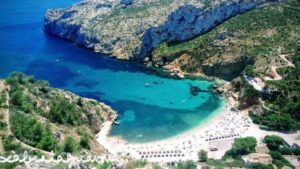Xàbia’s residents come out in force to help flood victims as death toll passes 150
Additional personnel from the UME have been deployed to the disaster zone to assist with aid and rescue work.

The residents of Xàbia are doing what they can to help those most affected by the most savage ‘gota fría’ storm to hit the Valencian region in living memory. The town hall put out a call for food, water, clothing and blankets to be brought to the municipality’s Portal del Clot complex and the response has been incredible with a constant stream of donations arriving to fill the multipurpose room.
There will be no collection today (Saturday 1st November) as the donations will be packed and distributed to the affected zones, but the town hall has asked residents to keep an eye on its social media networks for updates as the authorities receive more information about the needs of those who lives have been shattered by the devastating flooding and a second call will be issued.
At the end of yesterday, the authorities reported that around 366,000 people across twenty municipalities in Valencia were without drinking water whilst more than 113,000 people in 50 towns were without electricity, which was also affecting the drinking water distribution network. Some of the most seriously-affected towns, such as Chiva, are in desperate need of water and baby food as well as blankets.

Meanwhile, the authorities have confirmed that the number of lives lost has climbed to 158, 155 of which have been in the Comunidad Valenciana, two in Castilla-La Mancha and one in Andalusia. The Generalitat Valenciana has confirmed that the Feria Valencia exhibition and conference complex, located some 5 kilometres north-west of Valencia city centre, has been adapted as a provisional morgue which will be managed in coordination with the UME, Spain’s Military Emergency Unit, so that the bodies of those who have died can be preserved and delivered later to funeral parlours.
The Spanish Government also confirmed that 500 additional members of the UME have joined 1,200 personnel already deployed to the Comunidad Valenciana to continue with the rescue work and assist those who have been most affected by the passage of this savage storm through the region. The Minister for Territorial Policy, Ángel Torres, said that “all State resources are at the disposal” of the Generalitat Valenciana, including troops from the Army.
A large number of roads remain closed in the Comunidad Valenciana and the DGT, the General Directorate of Traffic, has called on citizens to reduce their journeys by car over the ‘Todos Los Santos’ long weekend. The Valencian government has added that travelling to the region from the rest of Spain should be avoided and that roads that have been re-opened are for the preferential use of the emergency services. The high-speed rail link between Madrid and Valencian remains closed and is likely to remain out of service until the middle of the month.
The Spanish President, Pedro Sánchez, has already visited the disaster zone and assured the Valencian people that they “will not be left alone” by Madrid. Felipe VI and Queen Letizia are also expected to travel to the most affected areas this weekend to show their support.
Finally, the blame game has begun with critics asking why two alerts sent to mobile phones in the region through the ES-Alerts system arrived more than 12 hours after the risk alert was declared by AEMET – one at 20:10 advising people not to travel and the second at 20:57 advising people to stay at home. And the state weather agency wasn’t the only authority to issue an early warning. At midday on Tuesday, the CHJ, the Júcar Hydrographic Confederation which manages the rivers and reservoirs in the Júcer drainage basin, had already warned of the alarming flow of water on the Poyo ravine in the Riba-Roja. Some experts have also proposed that the risk alert system be modified to include a ‘black’ level for extreme risk so that citizens would have no doubts.
The President of the Generalitat Valenciana, Carlos Mazón has also come under fire for his government’s decision to disband the UVE, the Valencian Emergency Unit when the new executive of PP and Vox took control of the Generalitat.
Approved in February 2023, the UVE – Unidad Valenciana de Emergencias – was aimed at improving coordination across the region in response to natural disasters such as forest fires and flooding. However, it had not become fully operational by the time the new government was in place and in November 2023, it was disbanded with the Interior Minister, Elisa Nuñez, insisting that the body would add “more complexity to the management of emergencies in the Comunidad Valenciana” and that the government was considering “more efficient” ways to coordinate emergencies with less funding.





